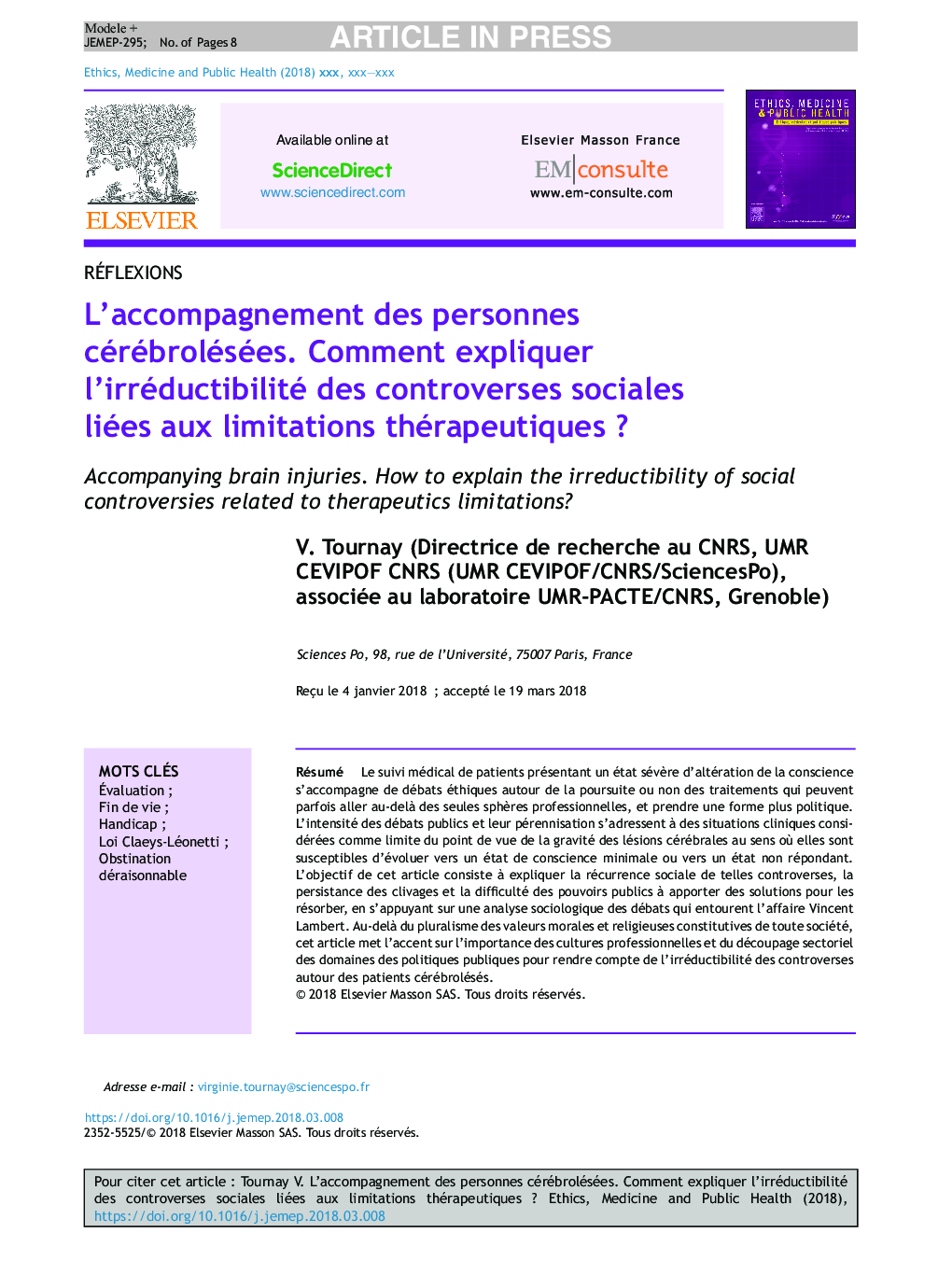| Article ID | Journal | Published Year | Pages | File Type |
|---|---|---|---|---|
| 10226979 | Ethics, Medicine and Public Health | 2018 | 8 Pages |
Abstract
The medical supervision of patients with severe state of altered consciousness is frequently accompanied by ethical controversies concerning the cessation or the continuation of treatment. The intensity of public debates and their sustainability concern borderline clinical states from the perspective of the severity of brain damage, characterized by their evolving to a minimally conscious state, or to a non-responsive state. The objective of this article is to explain recurrence of such social controversies, persistence of incompatible opinions and difficulty for policymakers to provide solutions in order to reduce them - based on a sociological analysis of debates related to the Vincent Lambert case. Beyond the constitutive pluralism of moral and religious values of any society, this article focuses on the importance of professional cultures and division of public policy domains to accounting the irreducibility of controversies focusing on brain-damaged patients.
Keywords
Related Topics
Health Sciences
Medicine and Dentistry
Critical Care and Intensive Care Medicine
Authors
V. (Directrice de recherche au CNRS, UMR CEVIPOF CNRS (UMR CEVIPOF/CNRS/SciencesPo), associée au laboratoire UMR-PACTE/CNRS, Grenoble),
